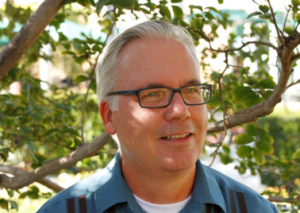Feisty Stories of Living with Disability
by Scot Danforth
Carol Rogers-Shaw’s rich memoir continues a fascinating tradition of autobiographical disability narratives that include works such as Stephen Kuusisto’s (1998) Planet of the Blind, Terry Galloway’s (2009) Mean, Little, Deaf Queer, Meri Nana-Ama Danquah’s (1998) Willow Weep for Me, and disability rights leader Judy Heumann’s (2020) Being Heumann. These exemplify what Garland-Thomson (2007) called “fresh and feisty disability narratives” (p. 119). Without apology, and often with great pride, these stories place the impaired and vulnerable body at the center of the plot structure. Through her own narrated experiences and by weaving in myriad encounters with her many disabled students, Rogers-Shaw skillfully recasts the stale tradition of tragedy-to-cure plots into full, authentic explorations of humans contending with precarity. The tales are deeply human, dealing with despair, hardship, connection, and joy. Her stories are truly a gift.
But any examination of Rogers-Shaw’s autobiographic writings must first contend with the elephant in the room, the dominant narrative of disability. Even the feistiest and freshest disability narrative does not issue forth into a welcoming cultural space waiting for honest explorations of human experience. It inevitably bumps full force into the dominant tale that already occupies that space, the American disability mythology that fills our pervasive assumptions about what it means to have a disability. I am referring to the ubiquitous Overcoming Disability story.
For modern Americans, the archetypal hero of the Overcoming Disability story is Franklin Delano Roosevelt. In the 20th century, as the professional fields of rehabilitation, special education, psychology, and psychiatry gained scientific and practical credibility, and non-disabled experts on disability predominated in those professions, the overarching tale of FDR “overcoming” his polio pervaded the cultural landscape. Our moral imagination of what disability means, the import of these helping professions, and what disabled people should be doing were carved deep into our unconscious minds by the powerful story of FDR overcoming his disability.
 Scot Danforth is professor of disability studies and inclusive education at Chapman University. His books include Becoming a Great Inclusive Educator and The Incomplete Child: An Intellectual History of Learning Disabilities. His current research focuses on the life and influence of the great disability rights leader Ed Roberts.
Scot Danforth is professor of disability studies and inclusive education at Chapman University. His books include Becoming a Great Inclusive Educator and The Incomplete Child: An Intellectual History of Learning Disabilities. His current research focuses on the life and influence of the great disability rights leader Ed Roberts.